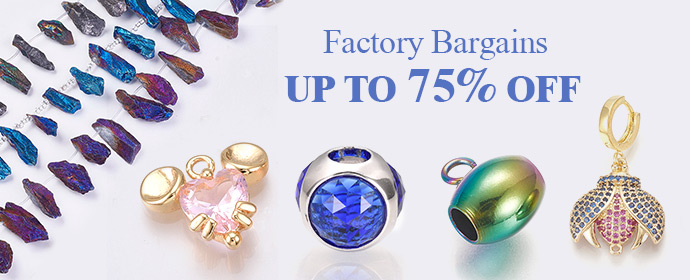Moroccan oil, often referred to as liquid gold, has become a staple in the beauty and wellness industry. Known for its exceptional moisturizing, nourishing, and healing properties, this oil has found its way into countless hair care, skincare, and even body care products. If you’re curious about what makes Moroccan oil so extraordinary and how it can transform your beauty routine, this guide is for you.
What is Moroccan Oil?
Moroccan oil, also called argan oil, is derived from the kernels of the argan tree (Argania spinosa), native to Morocco. For centuries, locals have used it for cooking, skincare, and haircare, appreciating its natural richness in essential fatty acids, antioxidants, and vitamin E.
Today, Moroccan oil is globally renowned as a versatile beauty ingredient that delivers deep hydration, improves skin elasticity, and enhances hair shine. Its lightweight texture and non-greasy feel make it suitable for all skin and hair types.
Key Benefits of Moroccan Oil
1. Deep Hydration and Moisturization
Moroccan oil is packed with essential fatty acids and vitamin E, which work together to lock in moisture. This makes it a powerful solution for dry and damaged skin or hair, leaving them hydrated and soft.
2. Restores Hair Health
Whether your hair is damaged from heat styling, coloring, or environmental factors, Moroccan oil can help restore its natural shine and texture. Its high antioxidant content protects hair from free radicals and UV damage.
3. Promotes Skin Health
Moroccan oil isn’t just for your hair; it’s also a fantastic addition to your skincare routine. It helps reduce redness, irritation, and inflammation while promoting a more radiant complexion.
4. Anti-Aging Properties
Rich in antioxidants, Moroccan oil combats the signs of aging by reducing the appearance of fine lines and wrinkles. It also improves skin elasticity, keeping it youthful and firm.
5. Protects Against Environmental Damage
The natural barrier created by Moroccan oil shields both skin and hair from pollutants, UV rays, and other environmental stressors.
How to Use Moroccan Oil
1. For Hair Care
As a Leave-In Conditioner: Apply a small amount of Moroccan oil to damp hair before styling to tame frizz and add shine.
Overnight Treatment: Massage it into your scalp and hair for a deep-conditioning effect. Rinse out the next morning for soft, rejuvenated hair.
Split End Repair: Dab a small amount onto the ends of your hair to minimize the appearance of split ends.
2. For Skin Care
Moisturizer: Use it as a natural moisturizer for your face and body, especially after bathing.
Soothing Dry Patches: Apply to dry areas like elbows, knees, and heels for instant relief.
Lip Balm: Dab a drop on your lips for a hydrating, natural balm.
3. For Nails and Cuticles
Massage Moroccan oil into your nails and cuticles to strengthen them and prevent dryness or cracking.
Why Moroccan Oil is Popular
Natural Ingredients
One of the reasons Moroccan oil has gained so much popularity is its natural origin. Free from harsh chemicals and synthetic additives, it’s a clean beauty staple.
Versatility
From hair masks to facial serums, Moroccan oil is a multi-purpose product that simplifies beauty routines.
Proven Results
Users often report noticeable improvements in their hair texture, skin glow, and overall appearance after using Moroccan oil consistently.
DIY Recipes Using Moroccan Oil
1. DIY Hair Mask
Ingredients:
2 tablespoons of Moroccan oil
1 tablespoon of coconut oil
1 egg
Instructions:
Mix all the ingredients and apply them to your hair, focusing on the ends. Leave it on for 20-30 minutes before washing it out with a mild shampoo.
2. DIY Face Serum
Ingredients:
3 drops of Moroccan oil
2 drops of rosehip oil
1 teaspoon of aloe vera gel
Instructions:
Mix and apply this serum to your face before bedtime for a glowing complexion.
Choosing the Right Moroccan Oil Products
Not all Moroccan oil products are created equal. To ensure you’re getting the best quality, look for:
100% Pure Argan Oil: Ensure the product is labeled as pure argan oil without unnecessary additives.
Cold-Pressed: Cold-pressed oil retains more nutrients than heat-processed variants.
Ethical Sourcing: Support brands that source their Moroccan oil sustainably and ethically.
Moroccan Oil vs. Argan Oil: What’s the Difference?
The terms “Moroccan oil” and “argan oil” are often used interchangeably. However, there’s a slight difference:
Argan Oil: Refers to the pure oil extracted directly from argan kernels.
Moroccan Oil: A marketed term often referring to argan oil-based products that may contain additional ingredients.
Why Moroccan Oil is a Must-Have
Adding Moroccan oil to your beauty routine can address multiple concerns, from dry hair to aging skin. Its versatility, combined with its natural origin, makes it a standout ingredient in the beauty industry.
Whether you prefer using pure oil or products infused with Moroccan oil, the results speak for themselves—healthier, shinier hair and softer, more radiant skin.
Where to Find High-Quality Moroccan Oil
If you’re looking for premium Moroccan oil products, consider exploring reputable beauty brands known for their commitment to natural ingredients. For eco-conscious consumers, brands like Nature’s Quest offer an exceptional selection of sustainable and gentle products that incorporate the benefits of Moroccan oil.
Final Thoughts
Moroccan oil truly lives up to its reputation as “liquid gold.” From hydrating dry skin to restoring damaged hair, its benefits are countless. Whether you use it on its own or opt for products that feature it as a key ingredient, incorporating Moroccan oil into your daily routine can elevate your beauty regimen.
Experience the magic of Moroccan oil and see how it transforms your skin, hair, and confidence. If you’re looking for trusted, eco-friendly products, explore options from Nature’s Quest—your gateway to naturally radiant beauty.
Featured image credit Nature’s Quest
Recommended1 recommendationPublished in Uncategorized









